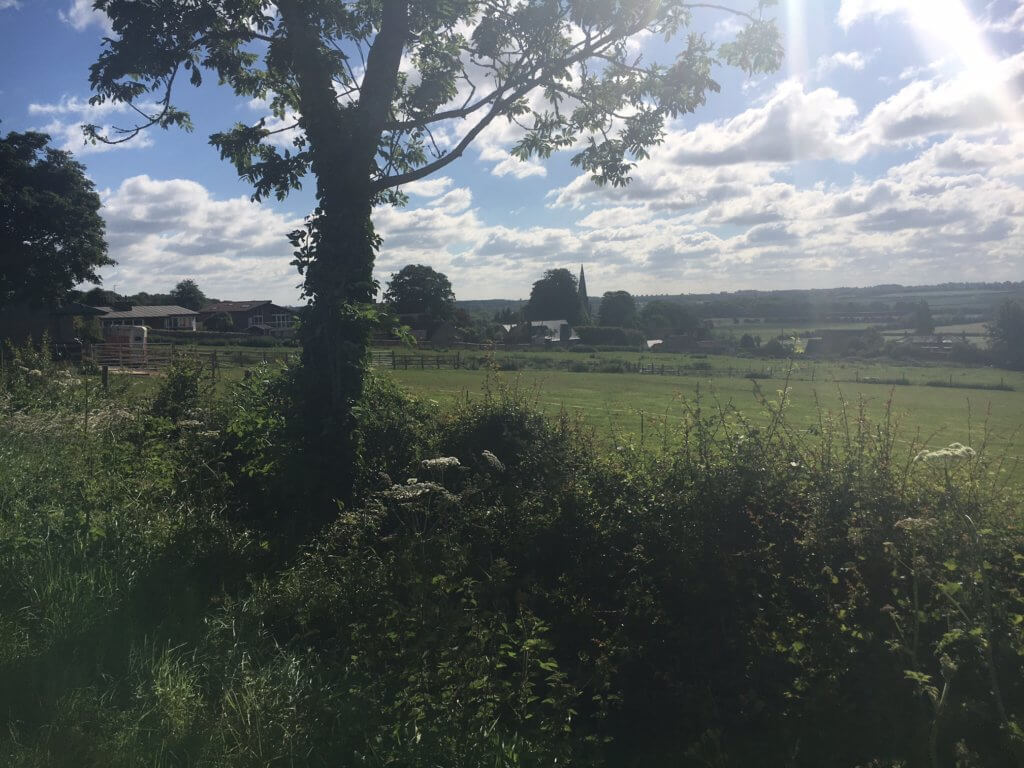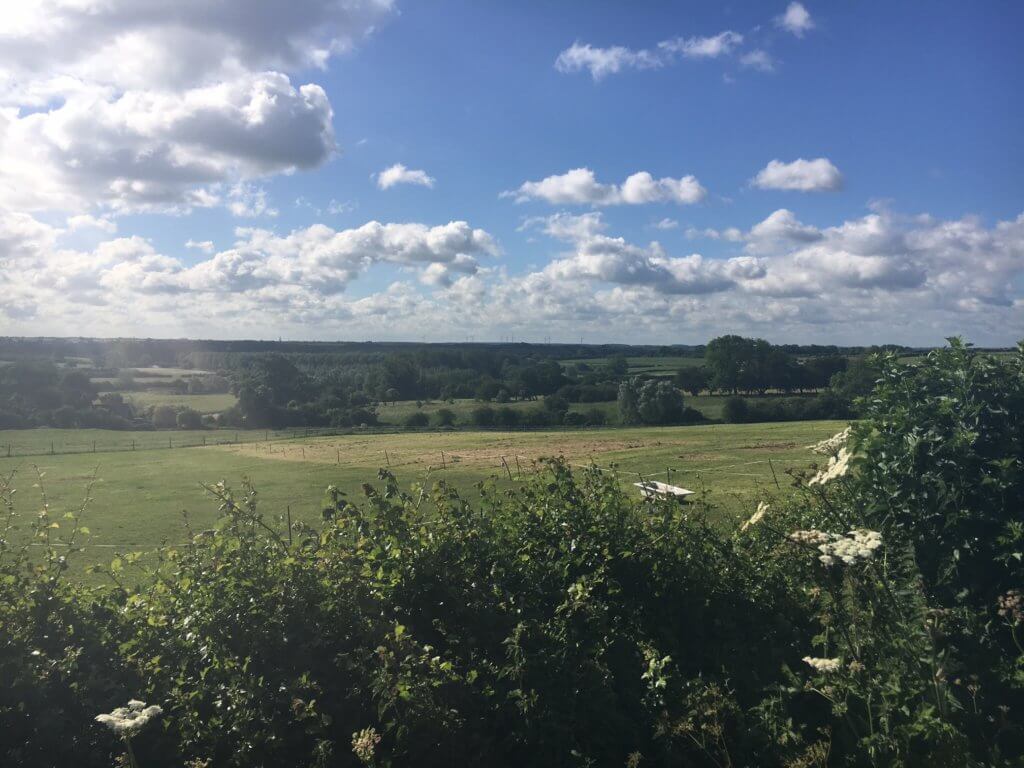
My Breeding Bird Survey walk starts near the church in the distance. I carried out the second visit to my second BBS square yesterday – it was a bit windy in the more exposed places but there were still plenty of birds around.
Do you remember that on the first visit I was saying that I thought the Sedge Warblers and Reed Buntings had had it? Well, the good news is that I was wrong. The vegetation has grown back in part of the site and there was a single Sedge Warbler singing away (maybe a male that has only recently moved in to this patch?) and there was a Reed Bunting too. Hooray!
There may be at least four, non-exclusive, points to be taken from this:
- environmentalists (like me) always assume the worst will happen
- it’s much better to get the data than assume we know what will happen
- birds always surprise us
- birds are very adaptable
Take your pick of any one, or any combination. Anyway, I was pleased to hear both birds singing (and to see the Reed Bunting as well).
I saw 47 species across the two visits which is very near the top end of the range for this site.
So that’s my BBS visits done for this year (see here, here and here). They are very satisfying: nice walks seeing nature and feeling as though one is contributing to a bigger picture. The BBS is funded by government agencies across the UK, the RSPB and the BTO – and by me and thousands of other volunteers who give their time, travel costs and expertise for free.

47 seems very good Mark, especially on a windy day. On average, the greater the wind speed the less song and calls. Also most songbirds start to reduce their song output very rapidly come the second week of June here in the south. (But things might be different where you are.)
Yes, birds are adaptable. Is it true that Reed Buntings are still spreading into scrubby down land?
And birds are surprising. What’s with Goldcrests and Firecrests which occur in the same places on this Sussex patch and who sometimes appear to sing against each other? A ‘pair’ did that here yesterday and the day before, at close quarters, and in very windy conditions when little else sang.
It’s on mornings like that when the same old samey walk becomes sensational.
It’s sad that you’ve had a ‘dislike’ for a piece like this!
I can understand it for your more political or controversial posts, but it’s a bit mean-minded here.
Alan – I hardly notice, honestly!
As I’ve said before, I regard dislikes as worth about half a like – they show engagement. If there is one inveterate regular ‘disliker’ then he, for it surely must be a ‘he’, would have more impact on me by ignoring me completely. So I thank him for his investment of time and wasted effort.
True. They are grist to the mill. I’m rather proud of a comment I made about golf and golfers here some time ago, 17 dislikes, excellent.
I was at Spurn yesterday the last of a 3 day visit and it was certainly far too windy so we sea watched and went for a walk down the peninsular as far as “Wire Dump” a few whitethroats were evident but little else and walking back across the breach ones opticals had to be well protected because it felt like you were being sand blasted!
Paul – sounds lovely!
Despite the weather Mark I thoroughly enjoyed it stopping in the new observatory talking to friends and acquaintances some of whom I have known for over 40 years, visiting a place I used to be so familiar with seeing the changes (many not so good) especially if wrought by the YWT with their new white elephant centre and carpark becoming a reality and hearing about their appalling treatment of the bird observatory and the real birders of Spurn as they chase the tourist dollar! And yes I even enjoyed the birding in trying conditions.
Some birds adapt happily to the changes we introduce into the landscape and it is wonderful to see our gardens supporting blackbirds, thrushes, tits and finches and our buildings providing nesting habitat for swifts, swallows and even kittiwakes. For too many species, though, the changes result in ever fewer places providing suitable conditions for them to thrive. As a result we witness more and more species declining in abundance.
At this stage of the day the results of the election are all but cast in stone (even if we wont find out until tomorrow) but I hope that we will get a government that will provide serious support for our flora and fauna rather than the usualy mealy-mouthed lip-service. Unfortunately your first bullet point is as true as the others and I cant help assuming the worst will happen